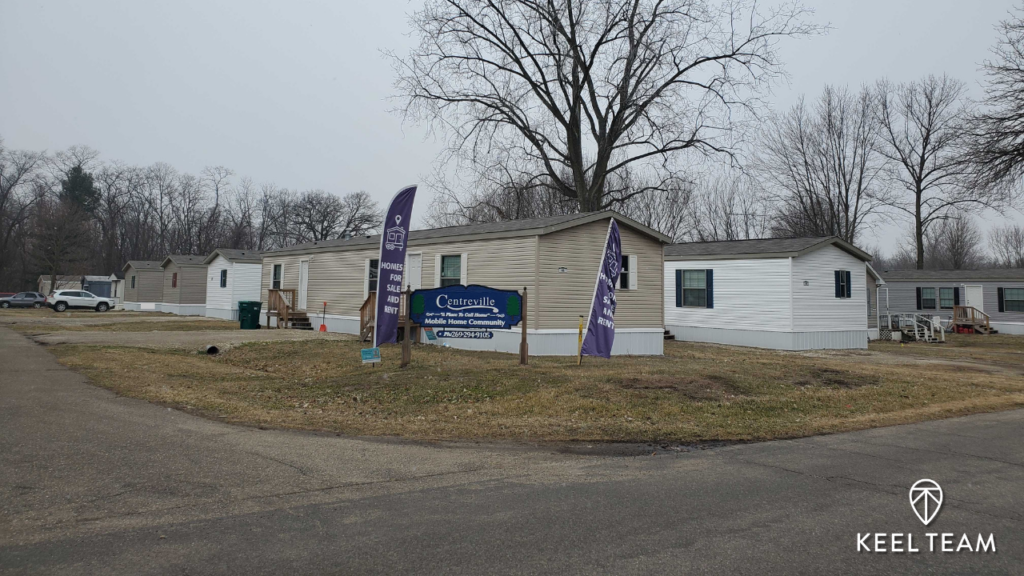5 Mistakes to Avoid When Buying Your First Mobile Home Park
-
 Tristan Hunter - Investor Relations
Tristan Hunter - Investor Relations

Investing in a mobile home park can be a smart way to generate passive income and build long-term wealth potential. However, like any real estate investment, it comes with risks and potential pitfalls—especially for first-time buyers. Understanding common mistakes and learning how to avoid them can make a big difference in the success of your mobile home park investment.
While no strategy can guarantee results, this article outlines five mistakes to watch out for when purchasing your first mobile home park.
1. Underestimating Due Diligence
One of the biggest mistakes new investors make is rushing through the due diligence process. It can be tempting to get excited about a deal, especially when the numbers look promising on the surface. However, without proper due diligence, you might miss major issues that impact the true value of the mobile home park.
Key areas to examine include:
- Accurate rent rolls and financial statements
- Utility systems (public vs. private)
- Infrastructure conditions (roads, water lines, sewer systems)
- Tenant leases and rules
- Zoning and permitting
- Environmental concerns (e.g., flood zones, contamination)
Take your time, ask questions, and consult with professionals when necessary. Doing thorough due diligence upfront can help reduce surprises after closing.
Download our FREE eBook on the Top 20 things to know BEFORE investing in mobile home parks!
2. Overlooking Private Utilities and Infrastructure in the Mobile Home Park
Mobile home parks with private utilities—such as well water, septic systems, or private electrical setups—often come with hidden maintenance costs and regulatory challenges. First-time investors sometimes assume these systems operate just like public utilities, but that isn’t always the case.
Before buying a mobile home park, verify:
- The age and condition of the private utility systems
- Whether the systems meet current codes and standards
- The cost and frequency of required maintenance or inspections
- Backup plans in case of failure
While some investors succeed with mobile home parks that use private utilities, they can add complexity and risk. Make sure you fully understand how they operate before taking them on.
3. Assuming You Can Easily Raise Rents
Many mobile home park investors look at under-market lot rents as a sign of opportunity. While raising rents can increase the mobile home park’s net operating income, doing so without a solid plan can lead to unintended consequences.
Residents in mobile home parks often live on fixed or limited incomes. Sudden rent increases without added value may cause backlash, late payments, or even tenant turnover. A better approach might be to:
- Research local market rent rates thoroughly
- Raise rents gradually and with proper notice
- Communicate clearly with tenants about improvements
- Offer value upgrades to justify increases (e.g., better roads, lighting, security)
Thoughtful rent increases, balanced with community investment, tend to produce better long-term results.

4. Not Factoring in CapEx and Ongoing Maintenance
New investors sometimes focus only on the purchase price and expected income without budgeting properly for capital expenditures (CapEx) and ongoing maintenance. However, mobile home parks often require significant upfront or deferred maintenance, especially older properties.
Common CapEx items to plan for include:
- Road repaving or patching
- Utility line repairs or replacements
- Tree trimming and landscaping
- Upgrading lighting or signage
- Replacing mailboxes or fencing
Even if tenants own their homes, the mobile home park owner is still responsible for maintaining the common areas and infrastructure. Build a conservative maintenance budget into your financial model to account for these costs.
5. Misjudging the Tenant Base in the Mobile Home Park
A successful mobile home park investment often comes down to the quality and stability of the tenant base. First-time buyers might focus too much on occupancy rates without looking deeper into tenant behavior, payment history, and turnover.
Ask these questions during your evaluation:
- Are tenants consistently paying rent on time?
- Is there a high rate of turnover or evictions?
- Do tenants own their homes, or are they renting from the seller?
- What is the overall condition of the homes and lots?
A mobile home park with full occupancy but poor tenant quality can end up creating more problems than expected. Ideally, look for a community with long-term, stable residents who take care of their homes.
Final Thoughts
Buying your first mobile home park investment is a big step. While the asset class offers strong potential for cash flow and appreciation, success often comes down to buying the right property and avoiding common pitfalls.
By taking your time, performing detailed due diligence, and planning for the realities of ownership, you may set yourself up for a more stable and rewarding investment. Keep in mind that every mobile home park is unique, and there’s no one-size-fits-all approach. Staying flexible, informed, and engaged will help you navigate challenges and find opportunities.
Are you looking for MORE information? Book a 1-on-1 consultation with Andrew Keel to discuss:
- A mobile home park deal review
- Due diligence questions
- How to raise capital from investors
- Mistakes to avoid, and more!
Disclaimer:
The information provided is for informational purposes only and is not investment advice or a guarantee of any kind. We do not guarantee profitability. Make investment decisions based on your research and consult registered financial and legal professionals. We are not registered financial or legal professionals and do not provide personalized investment recommendations.

Tristan Hunter - Investor Relations
View The Previous or Next Post




